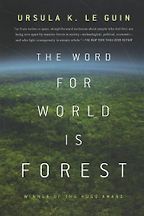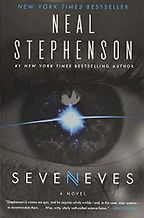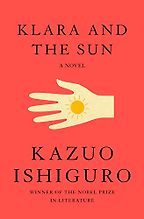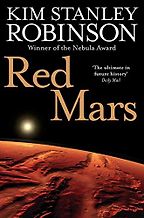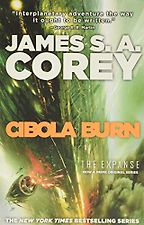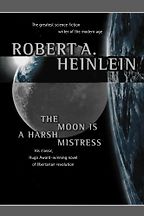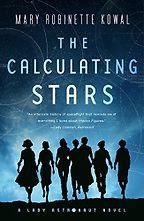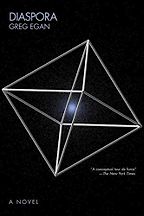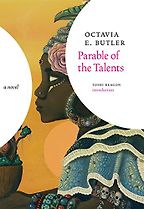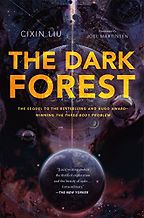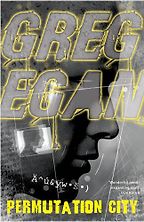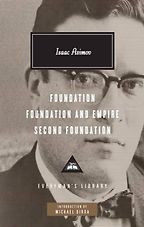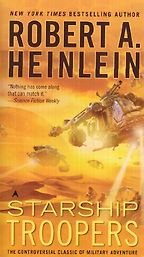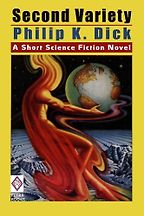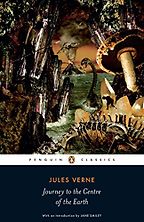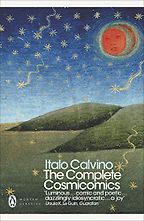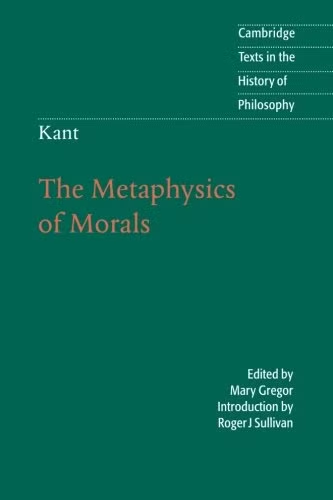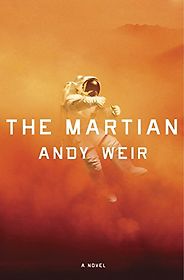Science Fiction Novels
recommended by scientists
Last updated: March 08, 2025
“The best science fiction is heavy on science and light on fiction,” Professor Chris Mason told us in his interview on science fiction and space travel. A geneticist and computational biologist at Cornell, he is just one of several scientists who have recommended the best sci-fi books on our site. Below, we've collected all our sci-fi books recommended by scientists—good choices for readers who love their fiction scientific.
“It’s a fabulous book of something that will likely be in our near future. The book started as chapters that were released for free and everyone was effusive in their praise for the accuracy of the technical details and the acumen of the writer to get everything just right. Even though it’s fiction, everything’s based on technology and methods that exist. It required no new technology that we don’t have right now.” Read more...
Space Travel and Science Fiction Books
Christopher Mason, Scientist
“This is part of Le Guin’s Hainish Cycle…It follows a human logging company on a small planet that’s covered in ocean and a few islands covered in forest. They’ve cut down all the trees on Earth, so they are excited to come and grab at these resources and send them home to make a lot of money. The conflict is that there are people living on the planet already in the forests. The logging companies immediately start exploiting them for labor and various other abuses. These very peaceful people who have lived sustainably with their forests, one of them snaps and decides to fight back and eventually, there’s a violent overthrow of the logging company and they get shoved back off the planet. It’s not really a happy ending because as the native people discuss amongst themselves at the end, now they’ve accepted violence into their society, which they haven’t before. So again, this is a mirror. It’s a look at how colonizers and especially resource companies—like mining and logging companies—abuse both the land and the people living on the land, and shows us how harmful that attitude could be in space.” Read more...
The Best Sci Fi Books on Space Settlement
Erika Nesvold, Physicist
“This book highlights how humans can adapt to what would seem to be an impossible survival circumstance. It really highlights the fragility of our planet.” Read more...
Space Travel and Science Fiction Books
Christopher Mason, Scientist
“Ishiguro is one of these novelists who is writing science fiction, but it’s not science fiction as we normally encounter it. It’s not the invention of a completely different world. Instead he takes one or maybe two conceits, and then explores their consequences in a setting that is relevant and immediately relatable to normal life. His writing is always so clear, spare, and vivid—and Klara and the Sun is no exception…literature has always been about understanding what it’s like to be a person, what it’s like to have a stream of thought, to be a human, to be an individual, or to be another individual. And that’s a key part of the story. Klara and the Sun is an absolutely remarkable example of how to develop this understanding. In ways I don’t yet know, it will no doubt make me think about my own work differently.” Read more...
Best Books on the Neuroscience of Consciousness
Anil Seth, Scientist
“Hard sci-fi is normally not my favorite genre—I want a little more depth into the characters—but he does such a fantastic job of looking at the different ideologies that you would see if you were creating a settlement on a new planet. So some of characters are settlers who are excited about terraforming and they want to turn Mars into a Green Mars—that’s where the name comes from. They want to make it as habitable as possible, as fast as possible. At the same time, you have other characters, geologists in particular, who want to preserve the pristine Martian environment, the Red Mars. They create these political factions. There is even political violence about this. And this is happening at the same time as they are all trying to figure out the actual politics of, ‘How do we govern ourselves? Are we part of Earth? Do we want to be independent?’” Read more...
The Best Sci Fi Books on Space Settlement
Erika Nesvold, Physicist
“When I first started getting into space ethics, the first thing I did was I made a podcast and I was interviewing experts and historians and sociologists and talking about issues that might be a problem in a space settlement…and every other conversation I had, someone would reference The Expanse…I’ve now watched the whole series and I’ve read the whole series and it’s absolutely true. It’s a realistic future, a couple of hundred years from now, where we’ve settled the moon and Mars in particular and all these different political and cultural factions have grown up all around the solar system.” Read more...
The Best Sci Fi Books on Space Settlement
Erika Nesvold, Physicist
“In the book, people who live on the moon are called Loonies. Their bodies have adapted to the lack of gravity and they have lighter bones. It’s basically a penal colony, because once you spend too long there, you can’t go back to Earth. I just like the idea of the adaptation in the biology of humans to different gravities and things like that which I’m sure would happen if people were growing up or living on the moon or on Mars.” Read more...
Space Travel and Science Fiction Books
Christopher Mason, Scientist
“It’s 1952 – hence, the alternate history – and a meteorite has hit the USA. The immediate death and destruction is vast (and politically destructive too), but the real issue is down the road: as deduced by our protagonist Elma, the climate consequences are imminent and will make earth uninhabitable. The push for space begins. But it’s 1952, and sexism frustrates Elma’s push to be involved with the mission itself. When she makes it onto the team she’s a figurehead as the ‘lady astronaut’, and not everyone is pleased…Kowal is reliably fun to read; Reactor Mag said of Calculating Stars, ‘The end of the world is no laughing matter, but Kowal knows well the importance of levity, and the healing power of a laugh.’” Read more...
Annihilation
by Jeff Vandermeer
“I like that Annihilation is set on a planet that’s very recognizably Earth, but also frighteningly different. We may not all turn into monsters, but I suspect the future might be weirder than we realise.”
The best books on Climate Change and Uncertainty
Kate Marvel, Scientist
“This book imagines a far future in which the world is populated with a diverse range of what I will call ‘persons’, rather than ‘humans’. This is a society without significant scarcity. In this society, people have immense freedom to consider what kind of life they want to live because they don’t need to hold down a job to draw an income. Furthermore, you can control your own values, especially if you’re one of the AI systems. You can just tinker with your settings, saying, ‘Okay, I think I’m going to really love math for a little while’, or you can change your values in many other ways. You can voluntarily adopt a new worldview for a while, then shed it. It gives us the existentialists’ question in its purest form.” Read more...
Science Fiction and Philosophy
Eric Schwitzgebel, Philosopher
“The main character of the first book, who is also one of the main characters in the second book, is growing up in this very slow climate-apocalypse-on-Earth society. The US is really falling apart and she is struggling to survive. At the same time, she is looking at the stars and she is creating her own religion, essentially, arguing that our destiny is to go out and colonize the stars. This is an argument that exists in real life, and I criticize it in my book, but I think Butler presents and frames it really well: why someone growing up in a terrible world like this—more terrible than ours but very similar—would still have hope for a future in space. Then, in the second book, Parable of the Talents, the main character’s daughter really presses her on this and says, ‘Is this what we need to be focused on? There are people starving on Earth. Why don’t you pay attention to me, your own daughter, instead of this dream of space?’ And I think those are also questions worth asking.” Read more...
The Best Sci Fi Books on Space Settlement
Erika Nesvold, Physicist
“In The Dark Forest…humanity realises the scale of the potential risk, and learn that they have 400 years to prepare before the alien fleet arrives. They know that the adversary is more technologically advanced than them, but not by how much.” Read more...
The best books on Existential Risks
The Centre for the Study of Existential Risk, Scientist
“This book is by Greg Egan, an Australian science fiction writer. He’s well known in circles that think about what I’ve been talking about and pretty much unknown outside them. To my mind, he’s written better about AI than any other writer, because he takes it seriously. He recognizes it represents enormous change. Permutation City is about a time in history when uploading becomes possible and very rich people can upload themselves into machines which operate quickly and in real time. Poorer people have to upload themselves into machines which process very slowly and so they live very slow versions of life” Read more...
The best books on Artificial Intelligence
Calum Chace, Novelist
“This is a very unusual set of novels from Isaac Asimov, but a classic…The story is about these people, psychohistorians, who are mathematical social scientists and have a theory about how society works. The theory tells them that the galactic empire is failing, and they then use that knowledge to save civilisation. It’s a great image. I was probably 16 when I read it and I thought, ‘I want to be one of those guys!’ Unfortunately we don’t have anything like that and economics is the closest I could get.” Read more...
Books that Inspired a Liberal Economist
Paul Krugman, Economist
“What really is great about this book to me is that all the science fiction just dissipates in the face of absolute veracity. And that’s something that I think if you’re writing this kind of stuff, you should aspire to. You shouldn’t focus on the gizmos. In this, the power armour is a suit of armour that powers your joints and makes you a lot stronger. These are commonly known as exoskeletons, and I’ve actually worn one of those at Berkeley Bionics. It’s really exhilarating to see that that is something that is already 100 per cent true, but here it just becomes part of the background and the flesh of this story, without ever becoming a huge focus of it. The story ends up being about the characters and a story about war and soldiers suffering, and that’s an amazing accomplishment, I think.” Read more...
Daniel H Wilson, Scientist
“The story is primarily concerned with ‘How do you tell a human from a robot?’ But what I found most interesting about it was that it was an apocalyptic future, in which human beings had built machines not to kill other human beings, but to learn how to kill other human beings. The robots initially were just landmines, they were very simple things. They learned how to camouflage themselves, and then human beings became more scarce and smarter, so the robots actually had to begin to learn how to mimic us. What’s interesting to me from a roboticist’s perspective is that it’s just a problem like any other – killing people. You can program a machine to learn how to do that optimally. What’s really fascinating is that the optimal form that this robot has chosen to kill human beings is another human being. That’s just a really, really cool concept to me; it’s a powerful message.” Read more...
Daniel H Wilson, Scientist
“The book has just enough science that it seems real. If you read it as a kid and re-read it as a geologist, you think there are some very interesting things in there. He plays around with certain facts. He comes up with a very interesting theory to explain that it doesn’t get hot as you go deeper underground (which was in vogue at the time), but the book imagines the preservation of prehistoric life in the subsurface and that’s something we’re still looking at. Many of the organisms that we find down there today look to be, from an evolutionary point of view, extremely primitive. The conditions we find them in are very much what the surface of the Earth used to look like, three billion years ago. There is no oxygen and three billion years ago there was very little oxygen on the surface of our planet.” Read more...
The best books on Life Below the Surface of the Earth
Tullis Onstott, Environmentalist
“It’s a series of short stories, or a novel really. But he’s doing something that no other novelist has ever done. He looks at the history of the universe, the history of life on Earth – all the major milestones – and he makes it human.” Read more...
Marcus Chown, Science Writer
“The thing I love about Kant is he goes on and on in most of his books about a sense of duty. He talks about duty in a variety of contexts: to family, to country, to children, but also about the duty to do the right thing. Most people, when they think of duty, it’s one of least exciting words that they can imagine. But Kant argues that a lot of your moral duty is innate. And I think our duty towards humanity and towards being the guardians or shepherds of life is also something that’s innate and activated by awareness of extinction. I take a lot of his writings on duty very much to heart, I guess I’d say.” Read more...
Space Travel and Science Fiction Books
Christopher Mason, Scientist
The Best Sci Fi Books on Space Settlement, recommended by Erika Nesvold
We look to the stars and imagine a new home for humanity, an escape from the troubles that plague us here on Earth, but as astrophysicist Erika Nesvold points out, many of our problems will join us on our voyage. Here, she selects five science fiction books that illuminate the challenges and possible conflicts we’ll face if we head for this new frontier.
Space Travel and Science Fiction Books, recommended by Christopher Mason
Space travel may be the stuff of science fiction but some of it is getting closer and closer to becoming reality. What’s more, we have a duty to pursue it, says Christopher Mason, Professor of Genomics, Physiology, and Biophysics at Weill Cornell Medicine and author of The Next 500 Years, a blueprint of how to set about leaving our solar system. Here, he recommends his favourite science fiction about space travel, and an essential philosophy book.

